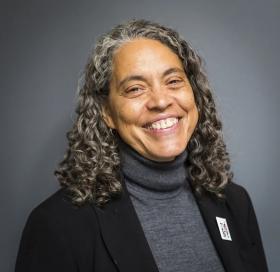
The Tao of K-drama: Reflections on Displacement, Trauma, and Recovery - Mindy Thompson Fullilove, MD, HON AIA, DLFAPA (Recorded)
This presentation will focus on South Korean television series known as “K-drama,” a genre that tells stories in 16-20 one-hour episodes. The stories focus on individuals in crisis, who resolve their issues in several steps that lead to a deeper engagement with their friends and family. This “team” then is able to tackle larger problems of the society. This optimistic drama form offers insight, drawn from the syncretic philosophical and religious traditions of Korea, into the recovery of individuals and groups, from an array of traumas and social upheavals. Implications for cross-cultural understanding and considerations for US mental health systems will be discussed.
Target Audience
______ Introductory ___x_ Intermediate ______ Advanced
Learning Objectives
- Describe the genre of K-drama
- Explain the concept of “enlightenment” that appears in K-drama
- Describe the construction of the social collective in K-drama
Mindy Thompson Fullilove, MD, is a social psychiatrist and professor of urban policy and health at The New School. Since 1986, she has conducted research on AIDS and other epidemics of poor communities with a special interest in the relationship between the collapse of communities and decline in health. She has published over 100 scientific papers and eight books. Among her books are the highly-regarded Urban Restoration Trilogy, Root Shock: How Tearing Up City Neighborhoods Hurts America and What We Can Do About It, Urban Alchemy: Restoring Joy in America’s Sorted-Out Cities , and Main Street: How a City’s Heart Connects Us All. She holds two honorary doctorates and is a distinguished life fellow of the American Psychiatric Association and honorary member of the American Institute of Architects.
Austen Riggs Center Inc. adheres to the ACCME’s Standards for Integrity and Independence in Accredited Continuing Medical Education. All those at Austen Riggs Center involved in the planning of this activity, including the presenter(s) listed above, report they have no relevant financial relationships with an ineligible company*.
The views and opinions expressed in this presentation are those of the presenter(s) and do not necessarily represent the official policy or position of the Austen Riggs Center.
* An ineligible company is any entity whose primary business is producing, marketing, selling, re-selling, or distributing healthcare products used by or on patients.
In support of improving patient care, The Austen Riggs Center is jointly accredited by the Accreditation Council for Continuing Medical Education (ACCME), the Accreditation Council for Pharmacy Education (ACPE), and the American Nurses Credentialing Center (ANCC) to provide continuing education for the healthcare team
Available Credit
- 1.00 AMA PRA Category 1 Credit™
ACCME - As a Jointly Accredited Organization, The Austen Riggs Center, Inc. designates this learning activity for a maximum of 1.00 AMA PRA Category 1 Credit™. Physicians should claim only the credit commensurate with the extent of their participation in the activity.
- 1.00 APA
As a Jointly Accredited Organization, The Austen Riggs Center, Inc. designates this learning activity for 1.00 continuing education credit(s) (CE) for psychology. Continuing Education (CE) credits for psychologists are provided through the co-sponsorship of the American Psychological Association (APA) Office of Continuing Education in Psychology (CEP). The APA CEP Office maintains responsibility for the content of the programs.
Austen Riggs Center, Inc. is recognized by the New York State Education Department’s State Board for Psychology as an approved provider of continuing education for licensed psychologists #PSY-0115.
- 1.00 ASWB-ACE
As a Jointly Accredited Organization, The Austen Riggs Center, Inc is approved to offer social work continuing education by the Association of Social Work Boards (ASWB) Approved Continuing Education (ACE) program. Organization, not individual courses, are approved under this program. State and provincial regulatory boards have the final authority to determine whether an individual course may be accepted for continuing education credit. Austen Riggs Center maintains responsibility for this. Social workers completing this Enduring will receive 1.00 continuing education credit(s).
Austen Riggs Center, Inc is recognized by the New York State Education Department's State Board for Social Work as an approved provider of continuing education for licensed social workers #SW-0843.
- 1.00 Contact Hours/ ParticipationA certificate of attendance for all Learners.

 Facebook
Facebook X
X LinkedIn
LinkedIn Forward
Forward